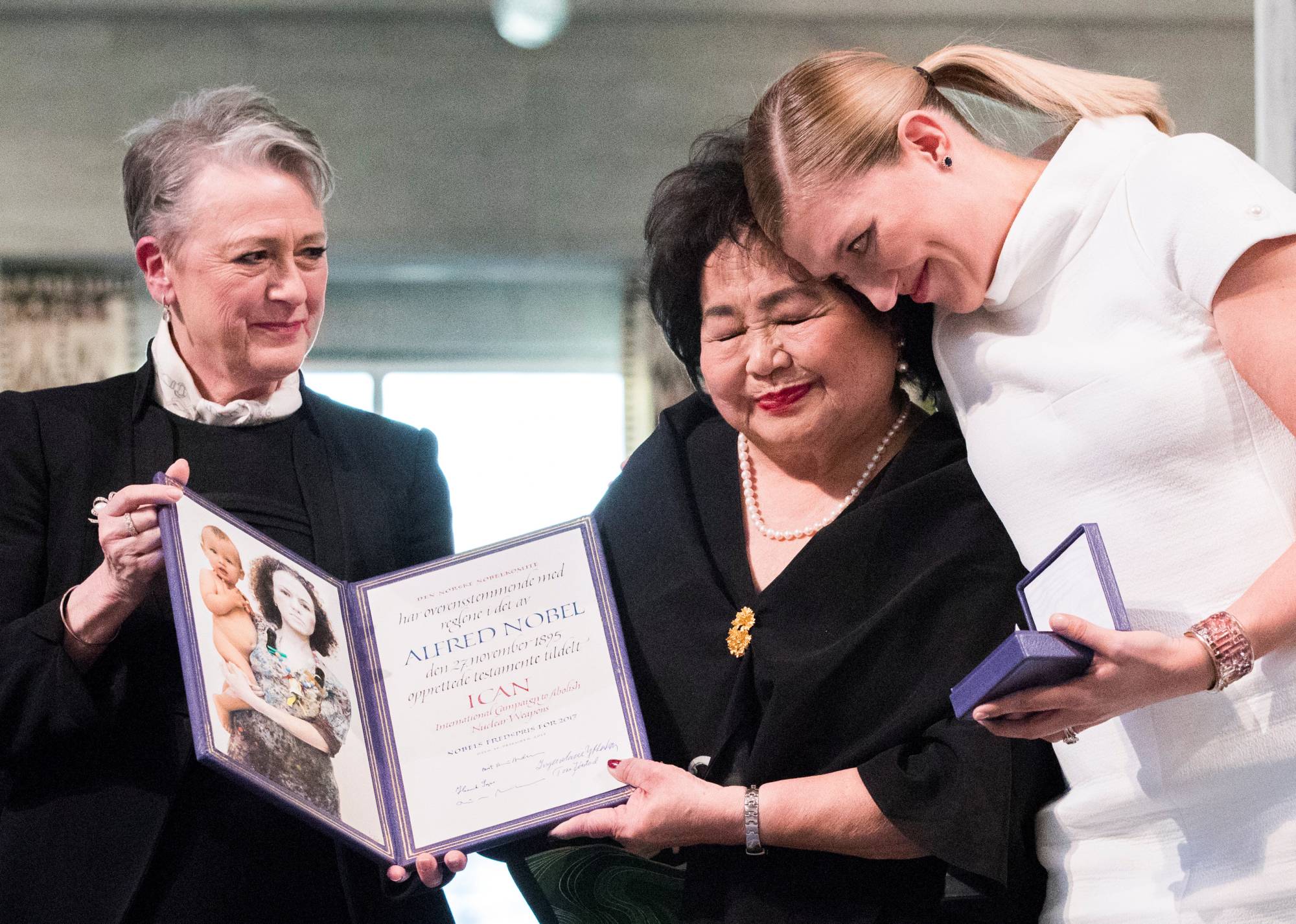Setsuko Thurlow is an atomic bombing survivor who lives in Canada. She has been a highly visible public face of the hibakusha around the world, campaigning tirelessly for nuclear abolition and was included in the small delegation from the International Campaign to Abolish Nuclear Weapons (ICAN) to receive the Nobel Peace Prize in 2017. When she showed up in the audience at a lecture I delivered in Toronto a couple of years ago, the atmosphere in the room turned electric and I felt the full emotional weight of history settle on my shoulders. On July 7, 2017, she was given the signal honor to deliver the closing remarks after the historic adoption of the Treaty on the Prohibition of Nuclear Weapons at the United Nations in New York. On that occasion, she memorably declared: “Nuclear weapons have always been immoral. Now they are also illegal.” Her declaration was three years premature, but we knew the significance of her pronouncement.
On Oct. 24, 75 years after the atomic bombings of Hiroshima and Nagasaki, on the 75th anniversary of United Nations Day, Honduras became the 50th country to ratify the ban treaty. It will enter into force on Jan. 22. From that date nuclear weapons will indeed become illegal according to international law. The postponed 50th anniversary of the Review Conference of the Parties to the Treaty on the Non-Proliferation of Nuclear Weapons (NPT) will be held next year in the shadow of this new institutional reality. The treaty cannot impose legal obligations on nonparties like China, North Korea and the U.S. as bomb-possessing states; nor on Japan and Australia as allies sheltering under the nuclear umbrella. But it will reorder the envelope of humanitarian laws, norms, practices, and discourse on nuclear weapons.
From our geographical-cum-geopolitical vantage point, the ban treaty has the great advantage of being nondiscriminatory and universal. Three of the four Indo-Pacific possessor countries are outside the NPT. Only China is party to the NPT. India and Pakistan never signed, with the former being a passionate critic of the nuclear apartheid that the NPT supposedly created between the five haves and all the rest of the have-nots. North Korea was a party but pulled out in 2003 and has built up a nuclear arsenal and an intercontinental delivery capability since then. This makes the NPT mostly irrelevant as the legal governance construct for the Indo-Pacific and for the Korean Peninsula, India–Pakistan, and China–India, all potential nuclear flashpoints.



